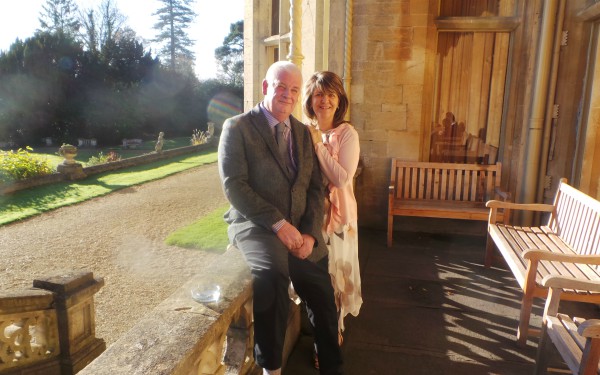“We are saying that we really value foster carers and want local carers for local children.”
This is Wiltshire Council social worker Rachel Pearce, on its plans to transform its fostering service by investing in the training, support and financial assistance it gives carers in order to provide stable homes for more children within the county.
The “Fostering Excellence” model is based on the recognition of the complex needs of many looked-after children and young people, often underpinned by trauma, that necessitate a skilled, attuned and empathetic response from foster carers – as well as the fact that, for most children, staying within their home area, close to their existing support networks, is best.
It will also provide fostering social workers like Rachel, and their colleagues in children in care teams, with the opportunity to engage in an innovative approach and make a bigger difference in the lives of the children and young people for whom Wiltshire is their corporate parent.
Wiltshire is building on its success as a good-rated authority overall, and for supporting children in care and care experienced young people; its Ofsted inspection last year said that stability of fostering placements was good and most children stayed in the same place once they came into care.
The challenge has been in recruiting enough in-house foster carers to keep children within the county and reduce reliance on independent fostering agencies, who have historically paid higher rates to carers and are expensive for the local authority to commission.
The plan is to recruit an additional 100 households to provide care over the next three years – chiefly through increases to fees for some carers, improved training and support, enhanced marketing and other incentives to make the lives of foster carers and the children they support easier.
Enhanced fees
The new simplified three-tier fee structure removes payments based on age and rewards carers purely on the basis of the skills required to care for children and young people. For those with the skills and experience needed to look after children with the most complex needs, the payments, worth around £34,000 a year, are sufficient to enable them to care full-time, and makes the council much more competitive with IFAs for their services.
“For those carers, we are taking our rates to what IFAs pay,” says Matthew Turner, service manager for fostering and children in care. “It’s about saying, ‘instead of fostering for an agency, come and foster with us and you will be able to give up work’. Our message is: ‘look after your family while you look after ours’.”
Rachel says it is about making carers feel valued. “In general, we work hard to make sure our foster carers feel valued but when they’ve had friends work for IFAs, they may feel that the grass is greener somewhere else.”
Those top-tier carers, known as ‘home away from home specialist foster carers’, are the ones who will enable the council to support the return home of children placed out of county in residential children’s homes.
“Long-term, it’s not right to move children out of their comfort zone where they can’t keep those relationships and secure bonds,” says Rachel. “Bringing them back to Wiltshire means any birth family that’s appropriate is accessible to them.”
Supporting them to make this happen is the second layer of the fostering excellence programme: training. The council is providing training in an approach known as Dyadic Developmental Practice (DDP), a model tailored for those caring for children suffering from significant developmental trauma as a result of abuse or neglect.
The approach is focused on providing the child with as much attachment security as possible through consistent, attuned and empathetic care. While the other two groups of foster carers – home away from home foster carers and advanced foster carers – will receive an overview of DDP, specialist carers will receive more targeted training.
“The children looked after are going to come with an element of trauma and there’s a lot of expectation on the carers – and receiving training from a trauma basis is giving foster carers that level of understanding we need to avoid breakdowns,” says Rachel.
While they already receive extensive training, Rachel says the DDP training is about giving carers a deeper understanding of why children have the needs they do.
“It’s about creating safety for the foster carers so they can help the young person feel safe,” says Carol-Anne Partridge, assistant team manager for fostering.
A shared approach
With social workers from fostering and children in care teams undertaking the same training, there will be a shared and consistent approach to supporting the child, says Carol-Anne.
“The aim is that we all work collaboratively and supportively with the foster carers,” she says. “It helps for us to have a shared ethos.”
The first group of social workers to undergo the training did so in July – through Wiltshire’s families and children’s service’s first face-to-face training session since lockdown
“It was really exciting,” says Carol-Anne, speaking shortly after the training was delivered, adding: “I know some social workers are already applying it in practice.”
Foster carers will also receive a richer level of support as part of the team around the child. For specialist carers, this will involve daily calls with, and weekly visits from, their supervising social worker, likely weekly contact with the team’s placement therapist, who is a clinical psychologist, fortnightly team-around-the-child meetings and improved out-of-hours support.
There will also be improved support from child and adolescent mental health services (CAMHS) through an in-reach service focusing on all aspects of mental health and wellbeing, including sexually harmful behaviour.
Opportunities
Matthew and Carol-Anne say the opportunities of the fostering excellence approach are not just for foster carers, but for social workers too.
“For workers in our fostering team, it’s an exciting development,” says Matthew. “They will have the opportunity to get involved in some pretty innovative stuff – really connecting with foster carers quite directly as part of a team around the child.”
As the number of in-house carers rise, so will the need for social workers within the team.
“Although caseloads are not massively high compared with other local authorities, if we do get the number of foster carers we need, we will certainly need more staff,” says Carol-Anne.
If you are interested in a role at Wiltshire Council, see the latest vacancies here.




 Facebook
Facebook X
X LinkedIn
LinkedIn Instagram
Instagram